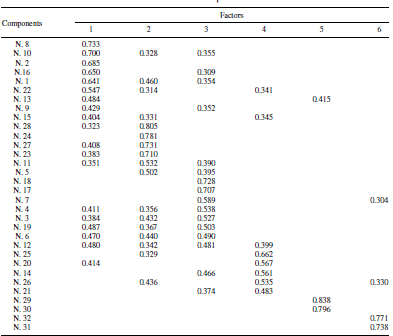Vol 3 No 1 (2021)
Research Article

Pages 109-120
Incarcerated juveniles have the greatest need for education and potential for improvement, yet they are one of the most underserved populations in terms of public education. Juveniles in detention centers receive a lower quality education when compared to public education systems–courses exclusively based on worksheets, single-room style teaching methods, a shortage of textbooks, and underqualified teachers. They also struggle to earn and transfer credits. In addition, solitary confinement often denies access to education, adding further disadvantages. Currently, juveniles have a low reenrollment rate in the public education system after their release. This paper presents a solution for the future of juvenile education, using the national response to COVID-19 of moving education online as a blueprint, combined with social science research, to provide small amendments to promote an effective learning environment.
Evaluating fine perceptual-motor skills in children with mild intellectual disability
Over the years, several studies have indicated that delay in perceptual-motor development and impaired motor organization is strongly associated with the level of cognitive functioning and performance in children. The aim of the present research study was to assess the fine perceptual-motor skills of children with mild intellectual disability 7-9-years-old and the comparison of their performance with two groups of typically developing children with the same chronological and a corresponding mental age. Our research sample consisted of 129 children between the ages of four and nine years whilst the experimental group had a total of 43 children (7-9-years-old) with mild intellectual disability. As an assessment tool of fine perceptual-motor skills we used a battery of tasks constructed in accordance with other commonly used standardized tests that measure psychomotor abilities. Furthermore, several comparisons were carried out in order to investigate our experimental hypotheses. Overall, our results revealed that children with mild intellectual disability scored lower in the tasks compared to typically developing children of equal chronological age but significantly higher than the group of typically developing children of the same mental age (preschoolers). The results of the psychometric properties of our designed tasks (reliability, validity) verify the high-quality psychometric characteristics of the designed tool.
Perceptions of kindness in pre-service early childhood teachers
Research evidence on Social and Emotional Learning implementation at schools has long been recognized. Most of the research however, has been focused on cultivating explicit social and emotional skills and relatively scant attention has been given to those positive human qualities or virtues such as kindness. Current study aims to illuminate pre-service early childhood teachers’ conceptualization of kindness. Two hundred and nineteen pre-service students described their perceptions of kindness. Kindness was conceptualized as a range of acts and words indicating respect, understanding and emotional support, which promote personal development and healthy relationships. Teachers’ kindness specifically was perceived important in cultivating students’ personality and teacher-student relationships. The findings of the study contribute to the topic of kindness in education which is a promising but undervalued area of school-based programming.
Children with peer acceptance problems struggle to fit in among classmates and often feel rejection and social isolation. Common reasons can stem from a child’s unique personality, individuality or special needs issues. These children often experience emotional problems and symptoms resulting from poor social relationships and difficulty fitting in to their environment. Within the classroom, teachers may provide encouragement and support for these children as well as their better adjusted peers, helping them equally engage through improved understanding and acceptance. In this article, a cooperative classroom approach is discussed to help students develop healthier communication with mutual respect and the freedom to be their natural, core self. A Democratic Student Council is presented as a cooperative classroom activity that encourages peer compassion and openness while supporting individuality and feelings of belonging.
Commentary

Pages 121-129
Most countries have realized that education is one of the important keys to transforming their countries, and this responsibility rests hugely on the shoulders of teachers. It is concerning that the plight of teachers who are carriers of both our children’s future and the future of this country seems not to be receiving the attention it deserves. Although teacher unions are many, it is questionable whether the teaching profession is receiving the protection and the encouragement it deserves in this country. The teaching profession faced many challenges in recent years. Just as we thought that the massive resignation trend that started in 2014 was coming to an end and that a period of stability was dawning, Covid-19 and the hard lockdown of 2020 happened and many of the teaching profession’s serious concerns were once again thrust into the limelight. This article is concerned with the struggles of teachers during the corona period; the researcher looked at, for example, the paradox of the reopening of schools while the pandemic was raging towards its peak and how it affected teachers. Teachers were promised that they could work from home till retirement if they had comorbidities and are sixty and above of age, but they were recalled to work.


 Catherine Hutwagner
Catherine Hutwagner



